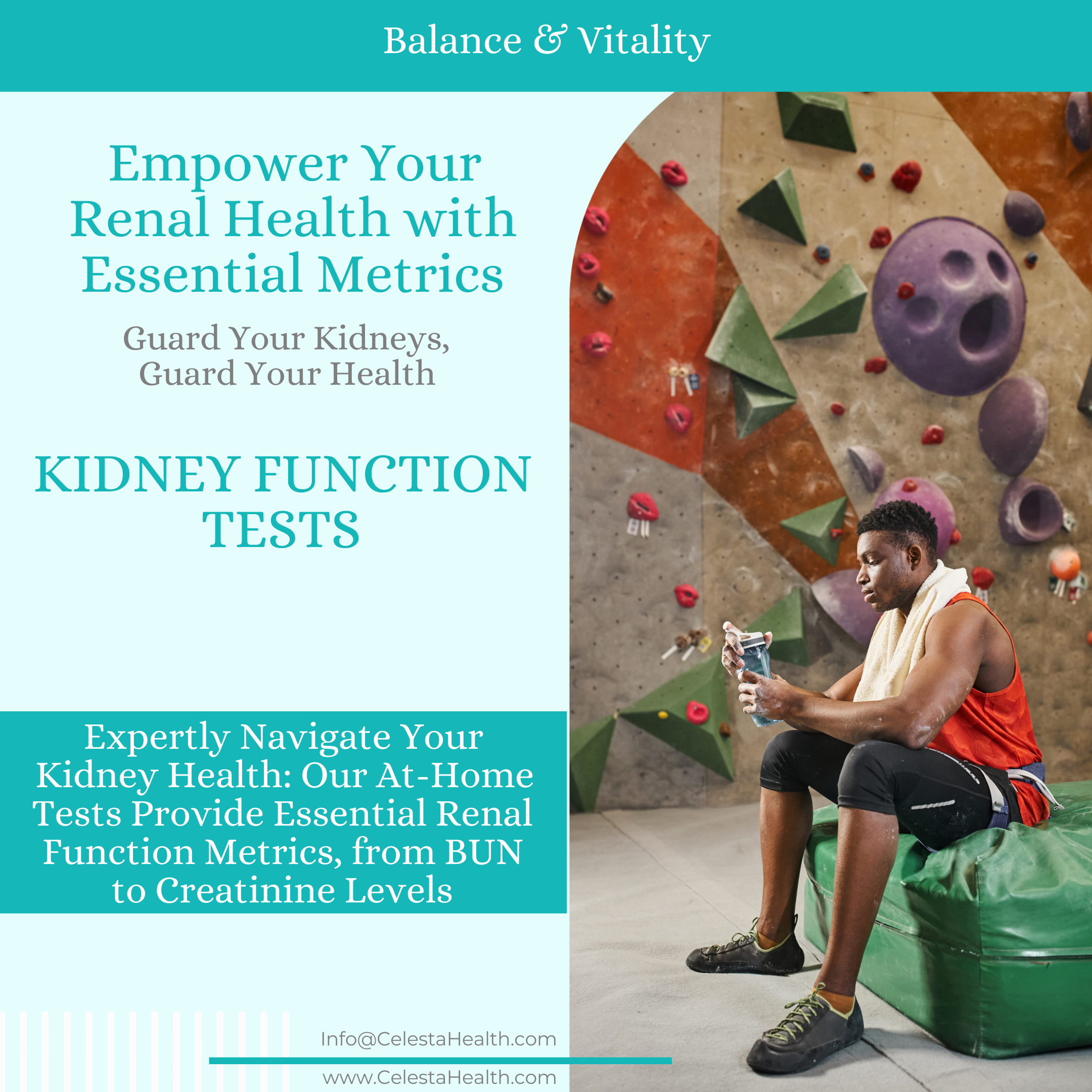Kidney Function Tests
$119.00
Get a complete understanding of your kidney health with our At-Home Kidney Function Tests. For comprehensive kidney assessment, measure critical markers such as BUN, creatinine in serum and urine, and urea in urine.
Secure Checkout
We encrypt all transactions.
CLIA Certified Lab
We meet & exceed all CLIA standards.
Access to Consultations
Consult with our Board-Certified Physicians.
Access to Coaches & Nutritionists
Award-winning Fitness & Nutrition Coaches.
What's Measured
Creatinine, Serum: Assesses kidney function by measuring the creatinine level in the blood.
BUN/Creatinine Ratio: Differentiates between various kidney and other conditions by comparing BUN and creatinine levels.
Creatinine, Urine: Measures creatinine clearance, another marker for kidney function.
Albumin/Creatinine Ratio, Urine: Provides early detection of kidney damage by measuring the amount of albumin to creatinine in the urine.
Estimated Glomerular Filtration Rate (eGFR): Calculates the rate of blood flow through the kidneys to estimate kidney function.
When to Test
Experiencing Symptoms: Fatigue, swelling, frequent urination, or changes in urine color. An abnormal urine albumin/creatinine ratio may also be associated with increased protein in the urine, foamy urine, or high blood pressure.
Doctor's Recommendation: If a healthcare provider suggests monitoring your kidney function for any reason.
Special instructions: While fasting isn't typically necessary, it's important to follow your usual diet in the days leading up to the test. Extreme changes in diet can affect the results. For example, a high-protein diet can temporarily increase BUN levels.
Proper hydration is important, especially for urine tests. Dehydration can affect the concentration of substances in the urine and may lead to misleading results.
Albumin in Urine: Due to daily variations in urine albumin levels, a diagnosis should only be considered if two out of three albumin tests are abnormal within a 3-6 month period. Recent physical exercise, infections, fever, congestive heart failure, high blood sugar, or significant high blood pressure can temporarily increase albumin levels in urine
Symptoms
High BUN/Creatinine Ratio: Could signify kidney dysfunction, dehydration, or urinary tract issues.
High Albumin/Creatinine Ratio: Often indicates proteinuria, which can be a sign of kidney damage.




